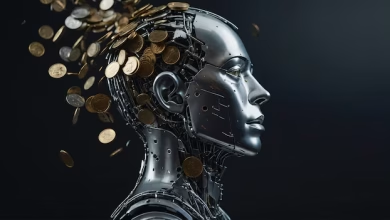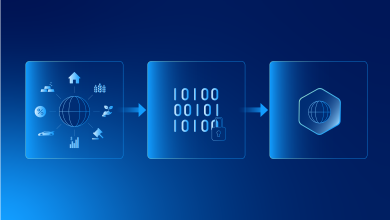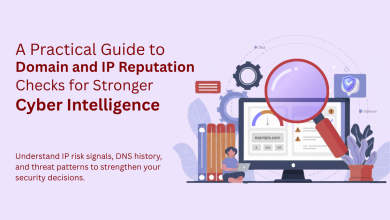
The blockchain industry is facing a significant challenge: a severe shortage of skilled developers. This scarcity is hampering innovation and adoption.
As projects continue to proliferate, the blockchain industry is increasingly turning to emerging AI-powered developer tools and agentic software engineers (SWE AI Agents) to not only bridge the talent gap but also save time and money.
The Developer Shortage: A Growing Bottleneck
The blockchain talent pool is alarmingly small.
The challenge is stark. Out of the 28.6 million developers worldwide, only 0.08% actively contribute to open-source blockchain projects. Despite the explosive growth in the field, with blockchain developers reportedly growing 39% per year since Ethereum’s birth in 2015, the overall pool of crypto devs declined by 7% in 2024 according to the 2024 developer report by Electric Capital. While approximately 39,148 new developers ventured into blockchain this past year, retention remains a big struggle; nearly 12% of newcomers and 47% of emerging developers with one to two years of experience exited the space after less than a year.
Several factors contribute to this dwindling pool, for example:
-
High Specialization Requirements → Aspiring onchain devs need to not only master the fundamentals of programming languages like Javascript or Python but also more niche smart contract languages such as Solidity or Vyper.
-
Rapid Technological Evolution → The blockchain domain evolves at breakneck speed, requiring continuous learning and adaptation.
-
Competitive Compensation → According to Glassdoor, blockchain developers with at least two years of experience earn roughly more than their counterparts in conventional tech companies. This premium makes retaining talent even more challenging, as experienced devs, who now account for ~70% of code commits, are in extremely high demand.
Moreover, the global distribution of talent has shifted.
In 2015, the United States held 38% of the developer share, but by 2024 it has shrunk to 19%, partially due to regulatory challenges. However, this trend may reverse with a friendlier Trump administration that favors innovation in both the Blockchain and AI industries to maintain competitiveness on the world stage.
Today, Asia leads with one in every three developers, with India emerging as a significant contributor to the crypto-developer community. This geographic shift further complicates the ability of U.S. based companies to build robust, in-house development teams. To make matters worse, these internet-native blockchain startups must navigate the minefields of North Korean state actors trying to infiltrate their remote-first environment and hack their protocols to steal users’ funds.
The Rise of AI-Powered Developer Tools and Agentic Software Engineers
In response to the blockchain engineer shortage, AI-powered developer tools and SWE AI Agents have emerged as productivity-multiplier solutions. Tools like Replit AI, DEVIN, and Cursor (an AI code editor) are already making huge strides in the broader tech community. In the blockchain space, these tools and others such as AtlasZK, CookbookDev, AuditWizard, or Kolwaii have the potential to transform how projects are built, maintained, and scaled. While saving organizations as well as individuals both time and money in the process.
Automation and Efficiency
SWE AI agents can perform tasks that traditionally require hours of manual coding and debugging.
For instance, automating smart contract generation and code audits not only streamlines development but also significantly reduces the risk of human error. With the ability to process and analyze vast amounts of data at high speed, these tools empower developers to make faster and more informed decisions.
Continuous Operation and Infinite Scalability
Unlike human developers, AI agents do not tire. As long as compute is available, they can work 24/7/365 maintaining consistent performance and freeing up human experts to tackle more complex issues.
Elevating Developer Productivity
By offloading routine tasks, AI-powered developer tools allow experienced developers to focus on creativity, problem-solving, and innovation. This multiplier effect can transform a skilled dev into a “10x developer”, significantly boosting productivity and output. Tools are emerging that not only write code but also assist in debugging, testing, and even optimizing existing codebases.
Practical Implications for Blockchain Development
A handful of real-world applications of these AI-enabled solutions are already visible in the blockchain industry. For example:
Lowering Barriers to Entry
For aspiring developers daunted by the steep learning curve of smart contract development, AI-assisted dev tools offer a more approachable entry point.
Initiatives like the Speed Run Ethereum challenge now leverage an AI assistant to guide newcomers through the process of building EVM-based onchain applications. Kolwaii, a software engineer AI agent that specializes in blockchain development, is trained on best practices for SWEs so she can teach new developers how to properly maintain GitHub repos and communicate with team members in a familiar collaborative environment (GitHub).
The SRE Challenge AI assistant and SWE AI Agent Kolwaii exemplify how these tools can democratize blockchain development and level up new developers.
Filling the Talent Gap
SWE AI agents can shoulder the routine and repetitive tasks aspects of blockchain development. By handling basic [smart contract] code generation and debugging tasks, they free human developers to focus on high-level strategic work and complex problem-solving. This symbiosis between the two can make blockchain development more accessible and less intimidating for newcomers, potentially widening the small talent pool.
Accelerating Project Timelines
Automation in code generation and smart contract audits can drastically cut down the development cycle. Blockchain projects, which traditionally take months if not years to deploy, could see significant time savings. This would make the industry more agile and responsive to market demands.
Enhancing Security:
With security as a perennial concern in the blockchain realm, AI-powered auditing tools such as AuditWare and BevorAI can detect vulnerabilities faster than manual reviews. These can be supplemented by tapping into the crowd-intelligence through smart contract audit competitions such as Immunefi, code4rena, and Cantina.
Promoting Cross-Chain Development:
AI-enabled dev tools such as AtlasZK can already facilitate smart contract generation and deployment across multiple blockchain platforms. Moreover, 34% of monthly crypto developers now work on multiple chains, up from less than 10% in 2015. A developer tool that handles smart contract generation and deployment would be helpful to these multi-chain devs who find themselves increasingly operating across multiple chains year over year. It can be useful in managing the inherent differences whether big or small between various blockchain architectures (EVM vs SVM).
Future Outlook for Blockchain Development
The demand for skilled blockchain and smart contract developers is only set to increase.
Especially, as more blockchains spring into existence. Every blockchain protocol has taken it upon themselves to onboard new developers. ICP, Aptos, Base, Bitcoin, Sui, NEAR, Polkadot, Polygon, Starknet, BNB, Optimism, Stellar, Scroll, and TON have collectively onboarded a few thousand devs in 2024. While challenges remain, the integration of SWE AI agents as well as AI-enabled dev tools specialized in blockchain and smart contract development could be the key to overcoming the current bottleneck.
AI-powered tools are not a magic bullet, but they offer a promising path forward. At the very least, they’ll save individuals and organizations both time and money.
By streamlining operations, reducing repetitive workload, and enhancing overall security these technologies can help blockchain startups improve productivity output and increase iteration speed. The collaboration between human expertise and artificial intelligence is set to redefine the boundaries of what is possible in blockchain development (as we’ve already seen in the broader tech scene).
As we look ahead, it is clear that the convergence of AI and blockchain technology will not only address the current talent shortage but also usher in a new era of efficiency, security, and scalability. Companies (and lean startup teams) that embrace these cutting-edge AI tools today are likely to lead the charge in tomorrow’s blockchain future. Ensuring that innovation continues to flourish even in the face of a constrained talent pool.





